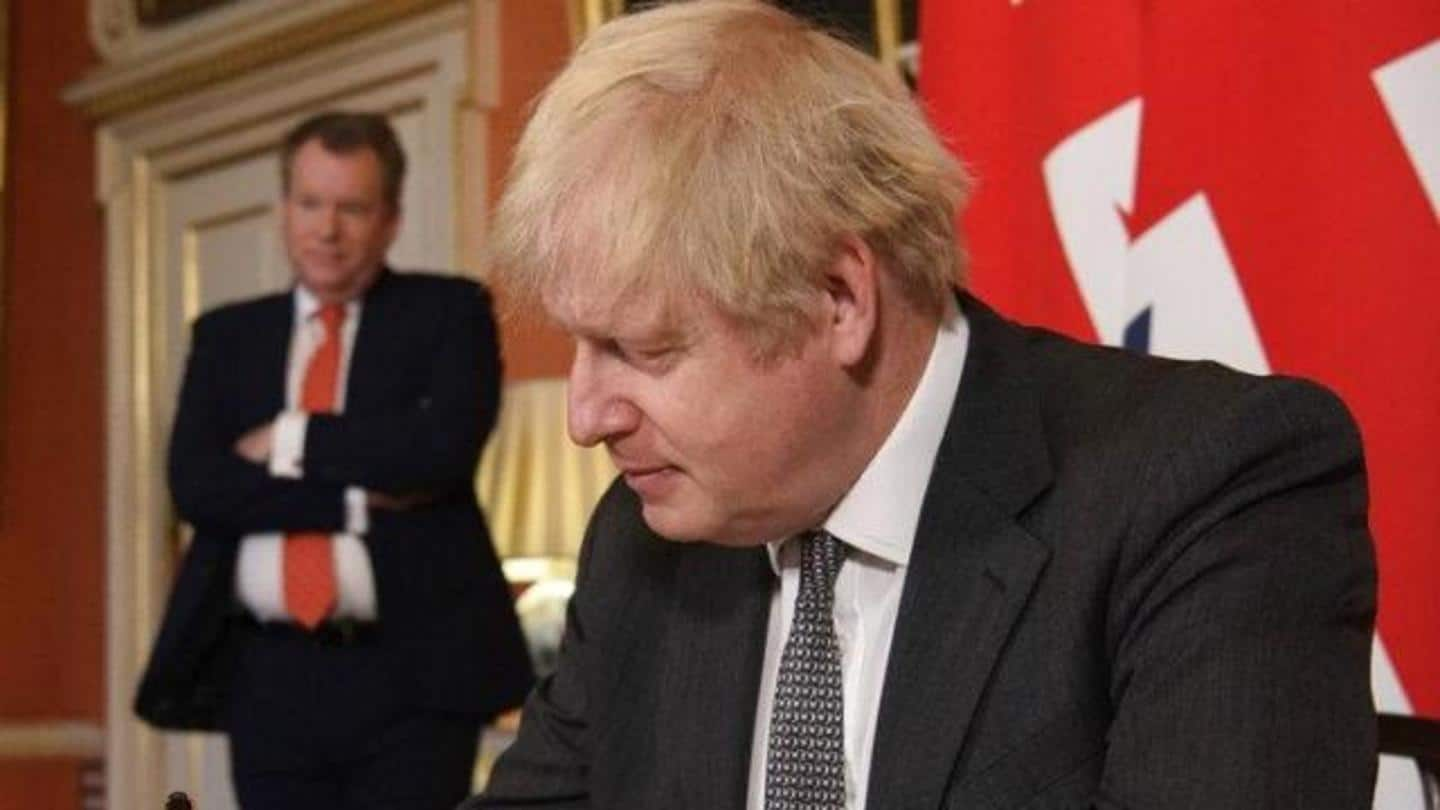
UK PM signs 'historic' Brexit deal after vote in Parliament
What's the story
UK Prime Minister Boris Johnson signed the Brexit trade deal with the European Union (EU) on Wednesday after members of Parliament voted overwhelmingly, 521 votes to 73 in the House of Commons. The documents had been flown to London in a Royal Air Force plane after being signed by European Council President Charles Michel and European Commission President Ursula von der Leyen in Brussels.
Quote
The treaty marks a new beginning between UK and EU
"The treaty that I've just signed is not the end, it is a new beginning and I think the beginning of what will be a wonderful relationship between the UK and our friends and partners in the EU," Johnson said.
About the bill
The Bill will allow Britain to control its 'national destiny'
The 80-page Bill, which follows a last-minute deal agreed with the EU, before the December 31 deadline of the end of the transition period, was debated by MPs in the House of Commons followed by the House of Lords. Johnson urged MPs to back the Bill, which will resolute UK's relationship with European neighbors and allow Britain to take control of its "national destiny."
Quote
'We sought a resolution of Britain's political relations with Europe'
"What we sought was not a rupture but a resolution, a resolution of the old and vexed question of Britain's political relations with Europe, which bedeviled our post-War history," said Johnson, as part of his opening speech in the House of Commons.
Details
Queen will give royal assent to the Bill
Earlier, the UK PM had recalled Parliament from its Christmas break to get the Brexit Free Trade Agreement (FTA) cleared through all parliamentary stages for the EU (Future Relationship) Bill to become law from January 1, 2021. Once both the Houses pass the Bill, it will immediately go to the Queen for her Royal Assent for it to become a law.
UK-EU trade agreement
UK-EU trade agreement will come into effect after 2300 GMT
Once the bill clears all stages in record time, the UK-EU trade agreement will come into effect after 23:00 GMT on Thursday. The Brexiteer wing of the Conservative Party fell behind the agreement, paving way for a smooth passage. The Opposition Labour Leader, Sir Keir Starmer, instructed his MPs to vote in favor of the deal, arguing the alternative would be a no-deal Brexit.
Criticism
Many parties also criticized the deal and voted against it
However, Starmer criticized the "thin deal" as having "many flaws" and said there was a "gaping hole" in the agreement's provisions for the services sector. Northern Irish Democratic Unionist Party (DUP) voted against the deal due to concerns that Northern Ireland remains tied to the EU than rest of the UK. The Scottish National Party (SNP) and Liberal Democrats also voted against it.
Information
Bill marks culmination of four-and-a-half years of negotiations
With Johnson's comfortable majority in the House of Commons, the Bill was expected to clear the required parliamentary threshold to become law. It marks the culmination of four-and-a-half long years of negotiations after the UK voted to leave the EU in June 2016.